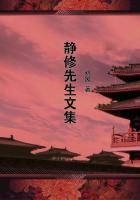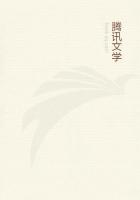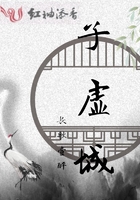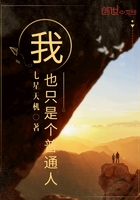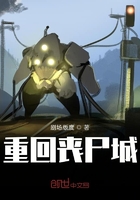For three weeks after his meeting with Bertrade de Montfort and his sojourn at the castle of John de Stutevill, Norman of Torn was busy with his wild horde in reducing and sacking the castle of John de Grey, a royalist baron who had captured and hanged two of the outlaw's fighting men; and never again after his meeting with the daughter of the chief of the barons did Norman of Torn raise a hand against the rebels or their friends.
Shortly after his return to Torn, following the successful outcome of his expedition, the watch upon the tower reported the approach of a dozen armed knights.Norman sent Red Shandy to the outer walls to learn the mission of the party, for visitors seldom came to this inaccessible and unhospitable fortress; and he well knew that no party of a dozen knights would venture with hostile intent within the clutches of his great band of villains.
The great red giant soon returned to say that it was Henry de Montfort, oldest son of the Earl of Leicester, who had come under a flag of truce and would have speech with the master of Torn.
"Admit them, Shandy," commanded Norman of Torn, "I will speak with them here."When the party, a few moments later, was ushered into his presence it found itself facing a mailed knight with drawn visor.
Henry de Montfort advanced with haughty dignity until he faced the outlaw.
"Be ye Norman of Torn ?" he asked.And, did he try to conceal the hatred and loathing which he felt, he was poorly successful.
"They call me so," replied the visored knight."And what may bring a De Montfort after so many years to visit his old neighbor ?""Well ye know what brings me, Norman of Torn," replied the young man."It is useless to waste words, and we cannot resort to arms, for you have us entirely in your power.Name your price and it shall be paid, only be quick and let me hence with my sister.""What wild words be these, Henry de Montfort ? Your sister ! What mean you ?""Yes, my sister Bertrade, whom you stole upon the highroad two days since, after murdering the knights of John de Stutevill who were fetching her home from a visit upon the Baron's daughter.We know that it was you for the foreheads of the dead men bore your devil's mark.""Shandy !" roared Norman of Torn."WHAT MEANS THIS ? Who has been upon the road, attacking women, in my absence ? You were here and in charge during my visit to my Lord de Grey.As you value your hide, Shandy, the truth !""Since you laid me low in the hut of the good priest, I have served you well, Norman of Torn.You should know my loyalty by this time and that never have I lied to you.No man of yours has done this thing, nor is it the first time that vile scoundrels have placed your mark upon their dead that they might thus escape suspicion, themselves.""Henry de Montfort," said Norman of Torn, turning to his visitor, "we of Torn bear no savory name, that I know full well, but no man may say that we unsheath our swords against women.Your sister is not here.I give you the word of honor of Norman of Torn.Is it not enough ?""They say you never lie," replied De Montfort."Would to God I knew who had done this thing, or which way to search for my sister."Norman of Torn made no reply, his thoughts were in wild confusion, and it was with difficulty that he hid the fierce anxiety of his heart or his rage against the perpetrators of this dastardly act which tore his whole being.
In silence De Montfort turned and left, nor had his party scarce passed the drawbridge ere the castle of Torn was filled with hurrying men and the noise and uproar of a sudden call to arms.
Some thirty minutes later, five hundred iron-clad horses carried their mailed riders beneath the portcullis of the grim pile, and Norman the Devil, riding at their head, spurred rapidly in the direction of the castle of Peter of Colfax.
The great troop, winding down the rocky trail from Torn's buttressed gates, presented a picture of wild barbaric splendor.
The armor of the men was of every style and metal from the ancient banded mail of the Saxon to the richly ornamented plate armor of Milan.Gold and silver and precious stones set in plumed crest and breastplate and shield, and even in the steel spiked chamfrons of the horses' head armor showed the rich loot which had fallen to the portion of Norman of Torn's wild raiders.
Fluttering pennons streamed from five hundred lance points, and the gray banner of Torn, with the black falcon's wing, flew above each of the five companies.The great linden wood shields of the men were covered with gray leather and, in the upper right hand corner of each, was the black falcon's wing.The surcoats of the riders were also uniform, being of dark gray villosa faced with black wolf skin, so that notwithstanding the richness of the armor and the horse trappings, there was a grim, gray warlike appearance to these wild companies that comported well with their reputation.
Recruited from all ranks of society and from every civilized country of Europe, the great horde of Torn numbered in its ten companies serf and noble; Britain, Saxon, Norman, Dane, German, Italian and French, Scot, Pict and Irish.
Here birth caused no distinctions; the escaped serf, with the gall marks of his brass collar still visible about his neck, rode shoulder to shoulder with the outlawed scion of a noble house.The only requisites for admission to the troop were willingness and ability to fight, and an oath to obey the laws made by Norman of Torn.
The little army was divided into ten companies of one hundred men, each company captained by a fighter of proven worth and ability.
Our old friends Red Shandy, and John and James Flory led the first three companies, the remaining seven being under command of other seasoned veterans of a thousand fights.


